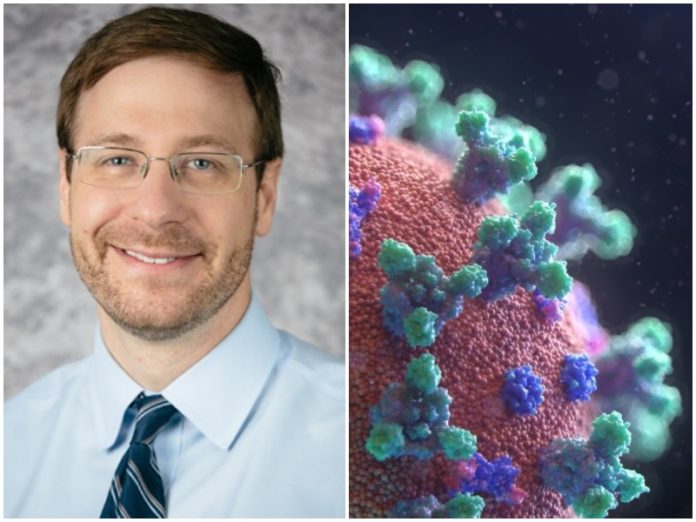This article is part of our series “COVID-19: 1 Year Later,” exploring the ways COVID-19 has affected and changed daily life over the last year. For two weeks, we surveyed our readers on how COVID-19 has affected them. Read our survey results here. Today, we are sharing an interview with Dr. Devin Sherman of Williamson Medical Center.
“I remember the second week of February last year when I was with my son’s Cub Scout troop at a Predator’s hockey game,” said Dr. Devin Sherman, Pulmonary and Sleep Medicine at Williamson Medical Center, “I said to some of the other fathers that it would probably be the last game we’d be able to see in a long time. They looked shocked.” But by March 5, the first confirmed case of COVID-19 was reported in Williamson County, and by March 30 Governor Lee issued the first “Safer at Home” order.
Williamson County Medical Center saw the first case of the disease in the state, and also had the most and sickest patients during the first wave. But they only had 10 to 12 sick patients at a time. Because they didn’t have the volume of patients seen in New York or Seattle, doctors had time to figure it out. They were able to create a special planning unit.
“Very quickly the medical community came together,” said Dr. Sherman. “We had more than 30 physicians from many places in the country get together online to solve problems, bounce ideas off of each other, and support each other. It was scary, but it was not as bad as it could have been without that kind of backing.” The open communication made the situation exciting as doctors and scientists worked together to find treatments that worked.
One thing that Dr. Sherman stresses is that in spite of all the “noise” about different treatments that have been in the news, strong scientific evidence has shown that there are only a few treatments that work — anti-virals, steroids, respiratory support, and COVID antibody plasma. And he states that taking the vaccine, wearing masks in public, and maintaining social distancing is very important to bring us back to normal.
Dr. Sherman is worried, however, about one thing that has happened during the challenges of the pandemic. “The pandemic has deteriorated the roll of expertise. Large subsets of the population think they know the answer, what does and doesn’t work. But what they think is outside of what medical expertise tells them. Counter to it. And can often be destructive. We need to get back to a common ‘language’ — good information, good scientific data. Going against what we know works can kill. Like not getting the vaccine.”
One of the things that he is most worried about is that people who don’t listen to the scientific facts will end up dying when their death could have been prevented.
“We have a much better understanding of how and where it spreads,” Dr. Sherman explained. “In large gatherings, house parties, holiday parties, Spring Break. In uncontrolled environments.”
Doctor’s offices are controlled environments. It is important that those with preexisting and chronic conditions go to their regular appointments to maintain their health. Kids and adults need to get their annual physicals. It means nothing if one stays safe from COVID-19, but allows their health to deteriorate due to other untreated ailments.
We are a very individualistic society, and even more so in recent years, but the more we can pull together for the good of the whole, the faster things will get back to “normal”, he feels.
“This is not about an individual,” stated Dr. Sherman, “It is about us as a community. We need to trust the experts. Trust the doctors. Do the right thing for all of us. That is what it is all about.”




















Dr. Sherman and the whole team at WMS are amazing. Have never seen doctors so willing to take in new information and adjust as I did while being treated there. Kudos for still going strong a year into this.